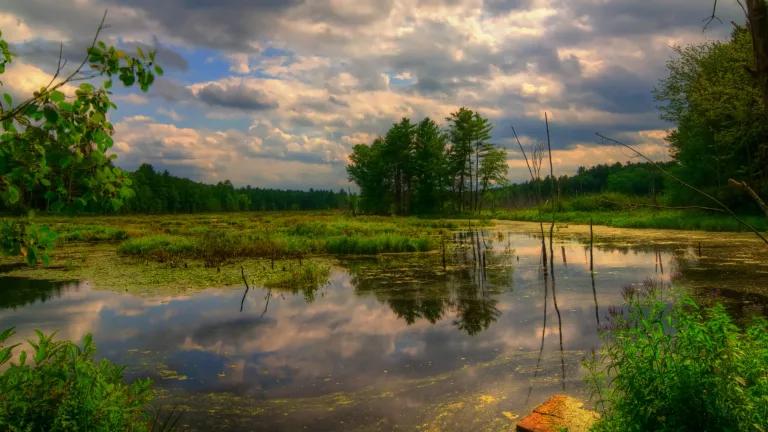
My community host, Zaya, returns to her spring camp on the back of a male reindeer; the Dukha raise reindeer for transportation and milk, rather than meat.
An unusual early morning routine is on perpetual repeat for one remote community in Mongolia’s northern taiga. It begins with a four-toed hoofprint protruding through the thin canvas wall of the teepee, prodding several times before disappearing. Then the hoofprint appears again with more vigor, accompanied by the throaty rhythmic grunting of the reindeer who are tethered to roots and trees surrounding the camp. These sounds serve as an alarm clock for the community—a message from their livestock that the sun has risen and it’s time to get to work.
It took me four planes, ten hours in a car and three hours on the back of a reindeer to reach the spring camp of the Dukha: an ethnic minority group whose livelihood is anchored by subsistence hunting, reindeer herding and seasonal migrations. Their cultural traditions and lifestyle have emerged from a deeply rooted connection to the fragile taiga where they live. Their religion, Shamanism, is based on respect and worship of the natural world for knowledge, healing and survival.
I travelled to visit the Dukha community with the objective of learning about their livestock husbandry practices on a landscape shared with wolves. Each day in the Dukha’s camp is a constant eb and flow of human and reindeer movement. The reindeer are released to graze in the forest in the morning, then later relocated, tied up, left again and regathered at the end of each day to be tied up closer to the camps for the night. Reindeer calves are tied up and released throughout the day at two or three-hour intervals. If a single reindeer goes missing from the herd, the owner may wander the mountains—sometimes for hours—trying to find it again before dark.

Helping to reunite a lost baby reindeer with its worried mother.
After many days and dozens of questions posed to my community hosts, Zaya and her husband Olsten, I came to understand that this rhythm of life is largely influenced by the presence of wolves on the landscape. Many of their efforts to move, regroup and relocate reindeer is an effort to monitor and protect the reindeer. Although human presence is their predominant strategy, they also use scare devices, fencing and dogs to prevent wolf predation.

Banca, the camp's most seasoned and faithful guard dog, surveys his surroundings.
It’s not a perfect system—wolves kill livestock on rare occasions, and people in the Taiga do occasionally kill wolves—but it’s a relatively harmonious system. Wolves are integral to the landscape and the Dukha have minimized the occurrence of predation through proactive community action to protect their herds. When wolves kill livestock in many parts of the world, it is often met with hostility and sentiments of injustice. But when I inquired about a recent wolf predation in the Dukha community, I was met with pragmatic responses that demonstrated stress over livestock losses, but were void of anger and resentment towards wolves. The community responded by building a fence to keep their animals closer to the safety of home.
Zaya explained to me, “We need the wolves to keep the balance of nature.” The Dukha recognize wolves as teachers and protectors: I was told that wolves teach the people how to be good livestock owners and wolves protect the well-being of both wild game animals and the reindeer herds by controlling the spread of disease. Zaya discussed wolves in the context of the give and take relationship between the Dukha people and their environment. They frame that relationship in terms of reciprocity, rather than conflict.

Preparing to depart the Dukha's camp on the back of a reindeer.
Zaya
The Dukha’s approach helps to demonstrate that the lives of humans and wolves are not inherently incompatible, or at odds; rather, they are inextricably linked. The views they expressed rest on a matter-of-fact sentiment that the wildness of wolves can result in challenges for human societies, but also adds benefits. Perhaps these beliefs help explain why the Dukha work so hard to coexist with wolves, even despite a total lack of resources and support from the government or others outside of the community.
Given the global-scale environmental issues of today, like the rapid decline of biodiversity, it seems more important than ever to acknowledge the often invisible benefits we receive from the plant and animal communities around us. Acknowledged or not, all human life depends on a healthy and functioning natural system. The fact that around 1,000,000 species are threatened with extinction today is a clear indicator that most human societies have lost sight of our intimate connection to ecosystem health; we have lost our balance. Communities like the Dukha offer inspiring lessons on how we can find it again.

A view of the Dukha's summer camp.



